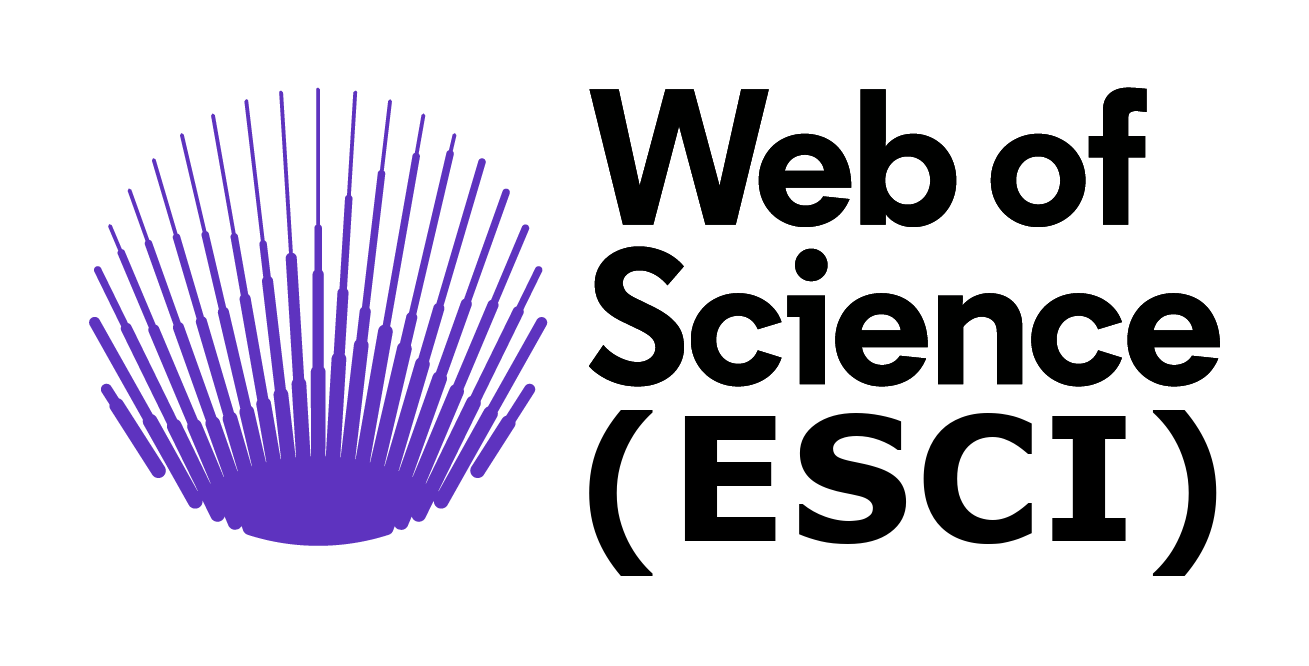Patrones de viabilidad de semillas, germinación y calidad de plántulas de tres especies forestales para la restauración en las condiciones amazónicas
DOI:
https://doi.org/10.29019/enfoqueute.890Palabras clave:
Patrones topológicos, tetrazolio, vivero, morfología, producción de plantasResumen
El objetivo de este trabajo fue evaluar patrones de calidad de semillas y plántulas de Switenia macrophylla King, Cedrelinga cateniformis (Ducke) Duckey y Ochroma pyramidale (Cav. ex Lam) Urb. como base para la restauración. Se realizó la prueba de viabilidad de semillas mediante Tetrazolio al 1 % (2,3,5- cloruro trifenil tetrazolio) durante tres tiempos de tinción, se consideró el porcentaje de viabilidad y niveles de vigor según el patrón topológico de tinción. Se determinó la velocidad de germinación, capacidad germinativa, e índices morfológicos de calidad de plantas, a través de la relación parte aérea-parte radical, esbeltez, grado de lignificación y calidad de Dickson. Se comprobó el mayor porcentaje de semillas viables con el máximo tiempo de tinción (3 horas). La categoría vigor medio fue superior en las tres especies, determinado por un patrón de tinción rojizo parcial como expresión de su calidad fisiológica, lo cual se reflejó en la respuesta a la germinación. Los índices de calidad morfológica permitieron identificar la potencialidad de crecimiento y desarrollo de las especies para su aclimatación al sitio. El análisis de correspondencia fue significativo (p≤0.05), lo cual facilitó la formación de grupos de calidad, resultando C. cateniformis de alta calidad como indicador de su potencialidad para cubrir las necesidades de restauración en las condiciones amazónicas.
Descargas
Referencias
Barnett, J. P. (1984). Relating seedling physiology to survival and growth in container-grown southern pines. In Springer (pp. 157–176). https://doi.org/10.1007/978-94-009-6137-1_8
Davis, A. S., & Jacobs, D. F. (2005). Quantifying root system quality of nursery seedlings and relationship to outplanting performance. New Forests, 30(2–3), 295–311. https://doi.org/10.1007/s11056-005-7480-y
Davis, A. S., & Pinto, J. R. (2021). The scientific basis of the target plant concept: An overview. Forests, 12(9), 1293. https://doi.org/10.3390/f12091293
dos Santos, F. S., Vieira, E. S. N., & Panobianco, M. (2019). Tetrazolium test for pinus taeda: Preparation, staining, and seed viability classes. Pesquisa Agropecuaria Brasileira, 54. https://doi.org/10.1590/S1678-3921.PAB2019.V54.01088
Douterlungne, D., Thomas, E., & Levy-Tacher, S. I. (2013). Fast-growing pioneer tree stands as a rapid and effective strategy for bracken elimination in the Neotropics. Journal of Applied Ecology, 50(5), 1257–1265. https://doi.org/10.1111/1365-2664.12077
Espitia-Camacho, M., Araméndiz-Tatis, H., & Cardona-Ayala, C. (2017). Características morfométricas, anatómicas y viabilidad de semillas de Cedrela odorata L. y Cariniana pyriformis Miers. Agronomía Mesoamericana, 28(3), 605. https://doi.org/10.15517/ma.v28i3.26287
Espitia-Camacho, M., Araméndiz-Tatis, H., & Cardona–Ayala, C. (2020). Morphological characteristics and seed viability of Schizolobium parahyba (Vell.) S.F. Blake. Revista U.D.C.A Actualidad & Divulgación Científica, 23(1). https://doi.org/10.31910/rudca.v23.n1.2020.1530
Fonseca, É. de P., Valéri, S. V., Miglioranza, É., Fonseca, N. A. N., & Couto, L. (2002). Padrão de qualidade de mudas de Trema micrantha (L.) Blume, produzidas sob diferentes períodos de sombreamento. Revista Árvore, 26(4), 515–523. https://doi.org/10.1590/s0100-67622002000400015
García-Quintana, Y., Arteaga-Crespo, Y., Torres-Navarrete, B., Robles-Morillo, M., Bravo-Medina, C., & Sarmiento-Rosero, A. (2020). Ecological quality of a forest in a state of succession based on structural parameters: A case study in an evergreen Amazonian-Andean forest, Ecuador. Heliyon, 6(7). https://doi.org/10.1016/j.heliyon.2020.e04592
García, Y., Arteaga, Y., Abreu, R., de Decker, M., & Lazo, Y. (2017). Quality indicators in Ochroma pyramidale seeds from three sites in the Ecuadorian Amazon for reforestation in degraded areas. MDPI in MOL2NET’17, Conference on Molecular, Biomedical & Computational Sciences and Engineering, 3rd Ed. Congress MODECO-02: Workshop on Molecular Diversity & Ecosystems, Puyo, Ecuador-Porto, Portugal, 4609. https://doi.org/10.3390/mol2net-03-04609
Grossnickle, S. C., & South, D. B. (2017). Seedling quality of southern pines: Influence of plant attributes reforesta journal view project seedling quality view project. Tree Planters’ Notes 60, 60(2), 29–40. https://doi.org/10.3390/f9050283
ISTA. (2003). International rules for seed testing. International Seed Testing Association, 984(1), 7–22. https://www.cabdirect.org/cabdirect/abstract/19850778874
Jácome-Segovia, C. S., García-Quintana, Y., Guerrero-Rubio, J. P., Arteaga-Crespo, Y., Lazo-Pérez, Y., & Morales-Moreno, A. (2019). Efecto de Trichoderma harzianum como bioestimulante en el crecimiento de plántulas de Swietenia macrophylla en condiciones de vivero. Revista Amazónica Ciencia y Tecnología, 8(1), 40–51. https://doi.org/https://dialnet.unirioja.es/servlet/articulo?codigo=7177565
Kimmelshue, C. L., Goggi, S., & Moore, K. J. (2022). Seed size, planting depth, and a perennial groundcover system effect on corn emergence and grain yield. Agronomy, 12(2), 437. https://doi.org/10.3390/agronomy12020437
Marcos-Filho, J. (2015). Seed vigor testing: An overview of the past, present and future perspective. In Scientia Agricola (Vol. 72, Issue 4, pp. 363–374). https://doi.org/10.1590/0103-9016-2015-0007
Marín, R. C., Marín, R. C., Bueno, M. O., Cespedes, D. G., Cordova, P. M., & Reasco, W. L. (2018). Aceleración de la germinación de semillas de balsa (Ochroma pyramidale) por medio de métodos físicos y biológicos. UTCiencia “Ciencia y Tecnología Al Servicio Del Pueblo,” 5(3), 207–213. http://investigacion.utc.edu.ec/revistasutc/index.php/utciencia/article/view/272
Meyer, S. E., Allen, P. S., & Beckstead, J. (1997). Seed germination regulation in Bromus tectorum (Poaceae) and its ecological significance. Oikos, 78(3), 475. https://doi.org/10.2307/3545609
Negreros-Castillo, P., Martínez-Salazar, I., Álvarez Aquino, C., Navarro Martínez, A., & Mize, C. W. (2018). Survival and growth of Swietenia macrophylla seedlings from seeds sown into slash and burn fields in Quintana roo, Mexico. Bois et Forets Des Tropiques, 337, 17–26. https://doi.org/10.19182/bft2018.337.a31628
Noguera-Talavera, Á., Reyes-Sánchez, N., Membreño, J. J., Duarte-Aguilar, C., & Mendieta-Araica, B. (2016). Calidad de plántulas de tres especies forrajeras (Moringa oleifera Lam., Leucaena leucocephala y Cajanus cajan) en condiciones de vivero. La Calera, 14(22), 21–27. https://doi.org/10.5377/calera.v14i22.2652
Pashanasi-Amasifuen, B., Aponte-Jaramillo, A. N., & Mathios-Flores, M. A. (2022). Crecimiento de Tornillo (Cedrelinga catenaeformis) y Marupa (Simarouba amara) dentro de un sistema agroforestal en multiestratos. Revista Peruana de Investigación Agropecuaria, 1(1), e10. https://doi.org/10.56926/repia.v1i1.10
Pedrini, S., & Dixon, K. W. (2020). International principles and standards for native seeds in ecological restoration. Restoration Ecology, 28(S3), S286–S303. https://doi.org/10.1111/rec.13155
Peñuelas R., J. L. y L. O. B. (2000). Cultivos de planta forestal en contenedor. Principios y fundamentos. https://scholar.google.es/scholar?cluster=2471773246499685627&hl=es&as_sdt=0,5
Quintana, Y. G., Abreu-Naranjo, R., Crespo, Y. A., & Morán, H. R. (2019). Optimisation of tetrazolium concentration and immersion time in the viability test of swietenia macrophylla seeds by using response surface methodology. Mathematical and Computational Forestry and Natural-Resource Sciences, 11(2), 257–263. https://doi.org/https://www.proquest.com/docview/2312117102?pq-origsite=gscholar&fromopenview=true
Reyes-Reyes, J., Rodríguez-Morales, J. A., Pimienta de la Torre, D. de J., Fuentes Pérez, M. A., Aguirre Medina, J. F., & Merino García, A. (2021). Diagnóstico de la calidad de planta en el vivero forestal El Campanario, Tuxtla Chico, Chiapas. E-CUCBA, 9(17), 29–37. https://doi.org/10.32870/ecucba.vi17.207
Rodríguez-Sosa, J. L., & Aguilar-Espinosa, C. (2019). Estructura morfológica, germinación y vigor de semillas de Juglans jamaicensis c. dc. del Parque Nacional Turquino. Revista Cubana de Ciencias Forestales, 7(3), 283–296. https://doi.org/http://cfores.upr.edu.cu/index.php/cfores/article/view/475
Rojas-Arévalo, N., Ovalle, J. F., Oliet, J. A., Piper, F. I., Valenzuela, P., Ginocchio, R., & Arellano, E. C. (2022). Solid shelter tubes alleviate summer stresses during outplanting in drought-tolerant species of Mediterranean forests. New Forests, 53(3), 555–569. https://doi.org/10.1007/S11056-021-09872-Z
Rueda-Sánchez, A., Benavides-Solorio, J. de D., Saenz-Reyez, J. T., Muñoz Flores, H. J., Prieto-Ruiz, J. Á., & Orozco Gutiérrez, G. (2013). Calidad de planta producida en los viveros forestales de Nayarit. Revista Mexicana de Ciencias Forestales, 5(22), 58–73. https://doi.org/10.29298/rmcf.v5i22.350
Staniak, M., Stępień-Warda, A., Czopek, K., Kocira, A., & Baca, E. (2021). Seeds quality and quantity of soybean [glycine max (L.) merr.] cultivars in response to cold stress. Agronomy, 11(3). https://doi.org/10.3390/agronomy11030520
Tola, C. C. (2016). Determinación de la concentración de tetrazolio y tiempo de tinción adecuado para el análisis de viabilidad en semillas de café. In revistasbolivianas.ciencia.bo. https://doi.org/http://www.revistasbolivianas.ciencia.bo/scielo.php?script=sci_arttext&pid=S0102-03042019000300004&lng=en&nrm=iso&tlng=es
Toledo-González, K. A., Levy-Tacher, S. I., Macario-Mendoza, P. A., & de Nova-Vázquez, J. A. (2019). Germination of two varieties of Ochroma pyramidale (Cav. Ex Lam.) urb. From the Lacandon Jungle, Chiapas. Revista Chapingo, Serie Ciencias Forestales y Del Ambiente, 25(1), 85–94. https://doi.org/10.5154/r.rchscfa.2018.06.046
Ureta, D., García, Y., Arteaga, Y., Morales, A., Lazo, Y., & Jalca, I. (2018). Método de clasificación a partir del diagnóstico de calidad morfológica en vivero para la selección de especies forestales promisorias en programas de restauración. Revista Amazónica Ciencia y Tecnología, 7(3), 142–150. https://doi.org/http://revistas.proeditio.com/revistamozonica
Valencia, W. H., Useche, F. L., Londoño, C. H., & Díaz, A. C. (2010). Germinación del Achapo (Cedrelinga catenaeformis Ducke-leguminosaceae) sometida a diferentes tratamientos en la amazonia colombiana. Ingenierías & Amazonia, 3(2). https://scholar.google.es/scholar?hl=es&as_sdt=0%2C5&q=Germinación+del+Achapo+%28Cedrelinga+catenaeformis+Ducke%29+sometida+a+diferentes+tratamientos+Ingenierías+%26+Amazonia&btnG=
Villalón-Mendoza, H., Ramos Reyes, J., Vega López, J., Marino, B., Muños Palomino, M., & Garza Ocañas, F. (2016). Indicadores de calidad de la planta de Quercus canby Trel. (encino) en vivero forestal. Revista Latinoamericana de Recursos Naturales, 12(1), 7. https://doi.org/https://revista.itson.edu.mx/index.php/rlrn/article/view/250
Descargas
Publicado
Número
Sección
Licencia
Derechos de autor 2023 Los Autores

Esta obra está bajo una licencia Creative Commons Reconocimiento 3.0 Unported.
Los autores retienen todos sus derechos (© copyright).
- Los autores retienen sus derechos de marca y patente, y también sobre cualquier proceso o procedimiento descrito en el artículo.
- Los autores retienen el derecho de compartir, copiar, distribuir, ejecutar y comunicar públicamente el artículo publicado en Enfoque UTE (por ejemplo, colocarlo en un repositorio institucional o publicarlo en un libro), siempre que se dé el reconocimiento de su publicación inicial en la revista Enfoque UTE.
- Los autores retienen el derecho a hacer una posterior publicación de su trabajo, de utilizar el artículo o cualquier parte de aquel (por ejemplo: una compilación de sus trabajos, notas para conferencias, tesis, o para un libro), siempre que indiquen la fuente de publicación (autores del trabajo, revista, volumen, número y fecha).
























